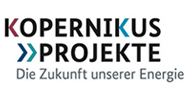06.11.2024 P2X
Auftakt der P2X Ringvorlesungen im Wintersemester 2024/2025: „Introduction to Power-to-X and Synthetic Fuels“
digital
06.11.2024 17:30 - 19:00 Uhr
Prof. Dr. Kirstin Hebenbrock und Prof. Dr. Peter Manshausen von der Provadis Hochschule eröffnen die Ringvorlesung mit einer Einführung in das Thema Power-to-X und synthetische Kraftstoffe. Insgesamt finden zehn Vorlesungen statt.
Die P2X-Ringvorlesung besteht aus zehn Veranstaltungen, die sich um Power-to-X-Technologien und deren Bedeutung für die Energiewende drehen. Die Veranstaltungen werden von der Provadis-Hochschule organisiert und bieten tiefgehende Einblicke in die Forschung der Kopernikus-Projekte. Zielgruppe sind Lernende in Schulen, (Fach-)Hochschulen und Universitäten sowie alle Interessierten. Vorwissen ist hilfreich, jedoch keine Voraussetzung. Die Immatrikulation an einer Hochschule ist ebenfalls keine Voraussetzung. Die Unterrichtssprache ist Englisch.
Abstract der Vorlesung
Den folgende Text haben die Vortragenden bereitgestellt.
This lecture provides an overview of the upcoming sessions that will cover various aspects of Power-to-X technologies. The process begins with electrolysis, where water is split into hydrogen and oxygen using renewable electricity—this is referred to as Power-to-Hydrogen.
Our focus will shift to the next step, which involves combining hydrogen with carbon dioxide through chemical processes such as Fischer-Tropsch synthesis or methanol synthesis—this is known as Power-to-Liquid (PtL). Power-to-Liquid is an innovative and emerging technology that addresses the dual challenges of reducing carbon emissions and creating sustainable fuels. PtL involves converting renewable electricity into liquid hydrocarbons, which can serve as synthetic fuels or chemical feedstocks. The resulting products include synthetic diesel, kerosene, and methanol, which can be utilized in existing internal combustion engines, aviation, and the chemical industry.
PtL technology presents a promising pathway to decarbonize sectors that are difficult to electrify, such as aviation and heavy transport, while also providing a means to store and utilize surplus renewable energy. By recycling CO2 emissions, PtL contributes to a circular carbon economy, where carbon is reused rather than released into the atmosphere. However, large-scale adoption of PtL faces challenges, including high energy demands, infrastructure requirements, and economic feasibility. Current research and development efforts aim to enhance process efficiency, reduce costs, and scale up production, making PtL a vital component of the future energy landscape.
We will also compare PtL with other pathways for producing sustainable fuels, like Biomass-to-Liquid (BtL). and Sun-to-Liquid (StL))
In conclusion, Power-to-Liquid represents a critical step toward a sustainable, low-carbon energy future, with the potential to significantly reduce greenhouse gas emissions and support the transition to renewable energy.
Eine Übersicht über alle Ringvorlesungen findet sich hier.


